Preparing to Attend A College Fair
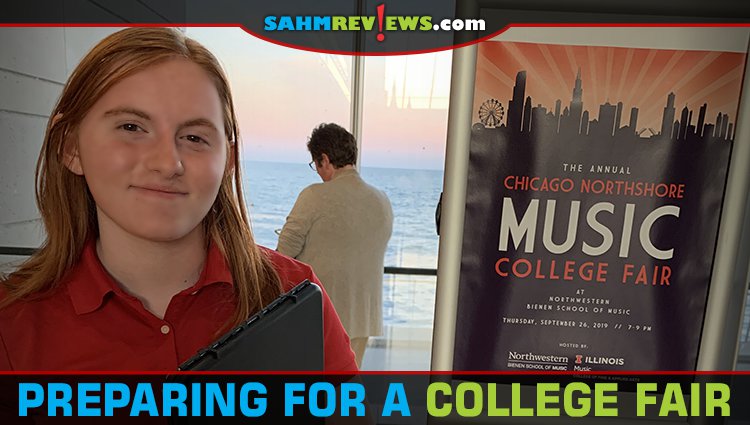
It seems like just yesterday that I was waving as Madison boarded the bus for preschool. But it was far from yesterday… it was August 2007. So much of what we did back then was a first. I tried to start making a list of those early “first” memories but it’s really hard to type when you are staring at the screen through tear-filled eyes. It doesn’t matter though because that list is still growing. Except all the new things we’re adding to the list these days involve the next major step in our children’s lives: First job, first college exam prep class, first time our teens drove out of state alone… first COLLEGE FAIR. Give me a minute while I sit and reminisce…
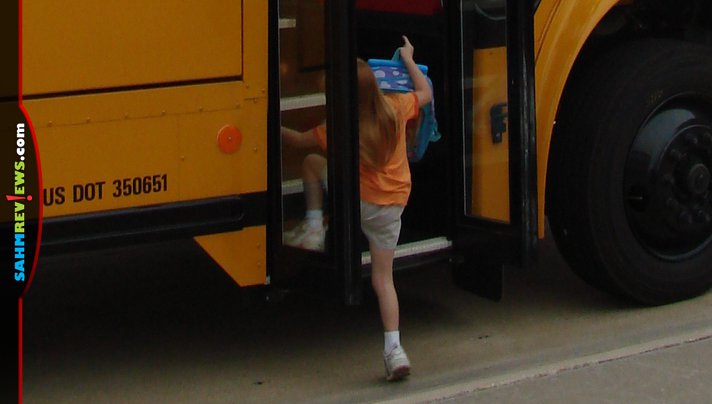
Last Thursday that is exactly what we did. Our first college fair. Well, HER first college fair. As with everything we do, we like to plan it out. Prepare as best we can to ensure we’re going to get the most out of the experience. Whether we’re trying to figure out what to pack for Disney or planning for a cruise, the more information and groundwork you take care of in advance, the better. It’s hard to know what to do so I started by scouring the internet for ideas. Between what I learned ahead of time and what we experienced on site, these are some tips to help you formulate a plan!
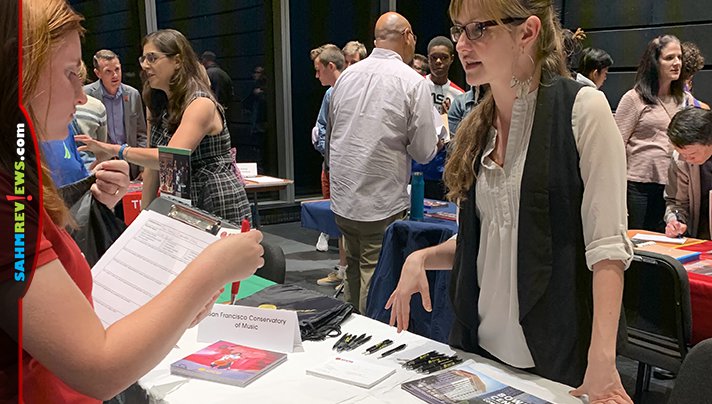
Decide Questions in Advance
I compiled a list of almost 70 questions then gave it to Madison to sift through. Her task was to decide which of these questions were the most important to her. Some had to do with finances, others academic, questions about campus life and additional involved job placement.
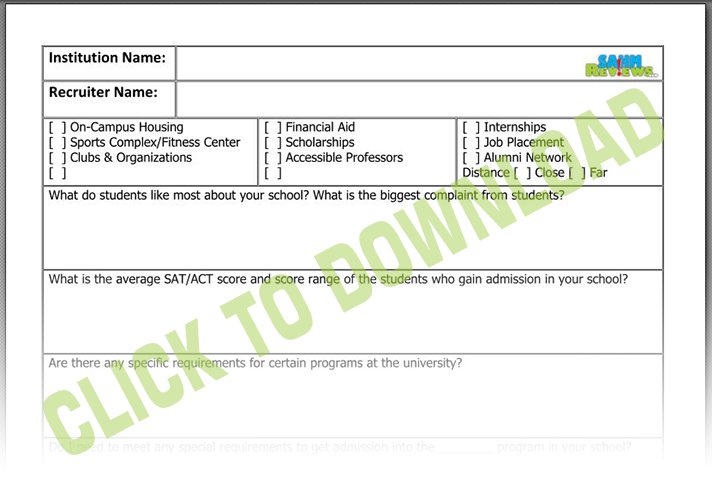
Once she had narrowed down her list, I dropped them into a form and added some additional fields to jog her memory about the conversation. My goal was to make a form that would help make the college fair experience as productive as our printable house-hunting checklist did for the multiple times we have moved. Once the form was created, I made copies for her to take with to the fair. She didn’t ask every question at every meeting, but rather used it to jot notes throughout the conversation then used it as prompts for additional information. We were surprised to hear many positive comments from the recruiters!
Contact information
At the same time, I read that it’s important to create labels that included many things she would need to fill out on forms while meeting with recruiters. These included her name, address, phone, email, high school, graduating year and prospective major. But Scott and I discussed it and from a professional standpoint, it didn’t seem right. It isn’t like she’s entering a raffle and they simply need to know how to get in touch with her. Most of the cards are personalized and asked for information specific to their location. Using a label would have covered up some of those questions. Besides, some places collect information digitally. So while it sounded good in principle, we opted not to do it. Instead, we encouraged Madison to bring a reliable pen and plan to write nicely. Most of the forms are sitting on the table so make use of your time and fill it out while you’re waiting for your turn to speak with the recruiter.
Dress nice
There’s a big range between the how you dress and present yourself for a school dance and showing up in shorts and a T-Shirt. You only have one chance to make a first impression so it’s important to be presentable. Wear dressy pants, a nice shirt and sensible shoes. Sure you can show up in whatever you want, but some recruiters take notes on who they meet!
Research the college institutions
The time is limited at a college fair and it’s a hard truth that you cannot visit every booth. Go through the list in advance and determine which ones you want to see first. Head straight there. On the flip side of that argument, don’t be surprised if you end up discovering that some aren’t a good fit at all. Once you have visited your top picks, talk to people at universities with shorter lines. Not only will you hone your presentation skills, but you may find a school that’s the perfect fit.
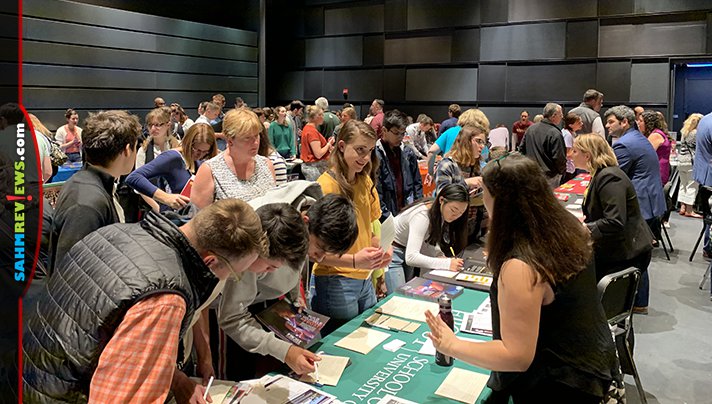
Expect Crowds
Check your impatience and emotional baggage at the door and prepare to be bumped and nudged due to the crowds. it isn’t that people are rude, simply that space is usually limited. When the doors open, head straight for your first pick so you’re at the front of whatever line begins. Expect it to be crowded and be mindful of how much time you spend asking questions when you know there are people waiting behind you.
Bring a Tote Bag
You’ll be picking up a lot of information so be sure to bring along a tote bag or string backpack to hold all the flyers and business cards you accumulate. It doesn’t have to be anything fancy, but it can be difficult to juggle stacks of brochures while trying to take notes.
As you get ready for this next step on your journey, keep an open mind, ask questions and listen to answers. Take notes then go home and evaluate. The next steps you’ll need to take involve visiting colleges and that’s a different “first” for another time.
What’s the most important thing to you when selecting a school?








Have a resume ready all the time!
Good ideas. But can you comment on how to do this during the Coronovirus crisis. The rules have changed with online courses and campus closing. Parents and students have to rethink how to approach college and need help to do this because of these changes.
The best idea is to have a list of questions ready for admissions counselors. It’s also nice to make a contact with a student that is already enrolled. Campuses usually have campus ambassadors or orientation leaders that are willing to help freshmen with any unique more personal questions they might have.
Long time since we have attended a college fair and I wish we had been better prepared. These are such helpful tips and having some advance questions and information would make it more valuable.
Preparing for a college fair would be the same as if going to a job interview. Dress for success and be prepared to answer questions about your goals and hobbies.
Go to the fair neat and clean, cover any outlandish tattoos or piercings.
intrusting thanks for posting this
My oldest is 46 in August & my youngest is 35.
Things didn’t change that much during those ten years. Maybe a little more organization.
They had questions mostly about their majors and what kind of courses they needed to help get their degrees! Well both of them after a couple of years, changed their majors. My first daughter came home with a husband! They both passed the marriage course. 22 years and four kids later, they are still happily married
2 of their kids are adults and in college! This was pin worthy. Thank you for sharing!
The dress nice is super important!
Good idea
My tip is to decide which schools you want to prioritize interacting with.
Tips:
1. As you said, bring your questions.
2. Bring a resume, contact information, etc.
3. Bring a bag or something to carry stuff. You’ll likely be picking up a lot of informational brochures, etc.
4. Take your time, talk to people and be patient.
I believe doing a thorough on-line background check of the college is very helpful and try to contact recent graduates or alumni on their advice.
never to early to focus on career: ask which companies actively recruit on/at the university.
also check the number of student vs available housing on/off campus. it is a HUGE issue at colleges like UC Santa Cruz, and off campus housing is SCARCE and $$$.